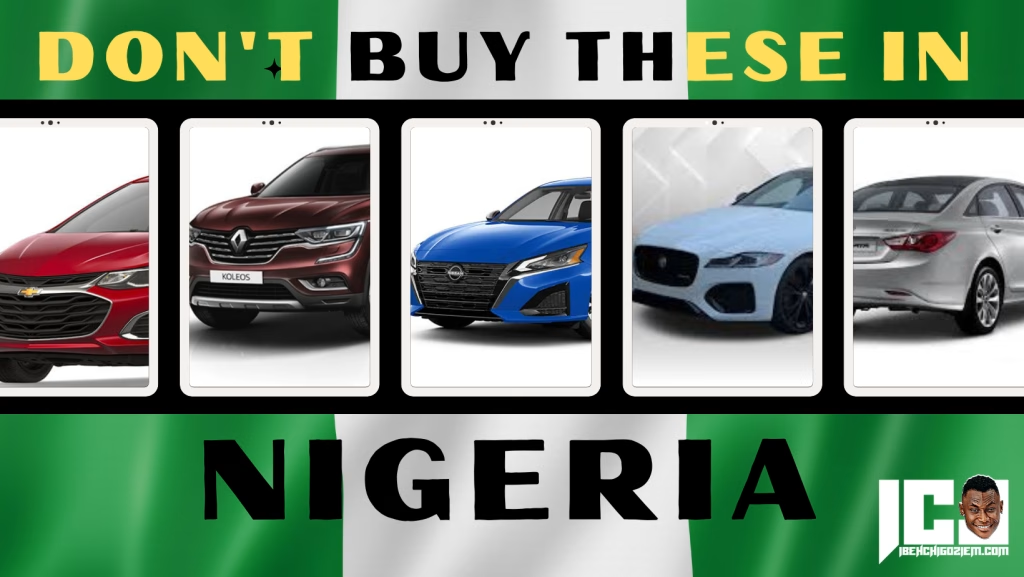Do Not Buy These Cars In Nigeria 2025: Here’s Why
Nigeria is one of Africa’s greatest marketplaces for used and new vehicles, but despite this, not all cars are appropriate for the country’s specific driving conditions.
Hence, road conditions, fuel quality, maintenance expenses, replacement parts availability, and resale value are all important considerations in purchasing selections.
It is also important to consider more than just appearance and power when placing an order for a choice car. To make the right decision, one needs to consider the actual realities: road conditions, spare parts availability, maintenance cost-effectiveness, and technical support. Avoid cars that are not suitable for Nigerian terrain and infrastructure to save yourself the stress and unneeded money in the long run.
Here Are The Top 10 Cars That Nigerian Customers Should Not Buy in 2025 And Why…..
- Volkswagen Passat
- Peugeot 508
- Hyundai Sonata
- Kia Cerato
- Chevrolet Cruze
- Chery QQ
- Renault Koleos
- Ford Fusion
- Nissan Altima
- Jaguar XF
1. Volkswagen Passat
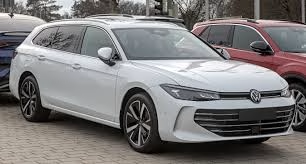
The Volkswagen Passat is a very affordable German car. However, its poor reliability undermines its affordability. Owners commonly mention problems with the brake system and electronics. Despite its fuel efficiency of 6.9 liters per 100 km, the continual need for repairs makes it a doubtful choice for Nigeria’s roads.
ALSO READ Top 10 Best Cars To Buy In 2025
Globally, the Volkswagen Passat is praised for its sleek design and comfortable driving experience, but it may not be the best choice for the average Nigerian car buyer due to several factors, including maintenance issues, availability of spare parts, and cost of repairs, making the Passat a less-than-ideal option on Nigerian roads.
1. Complicated Engineering and Electronic issues
The Passat is renowned for its intricate engineering and utilization of cutting-edge electronics. In countries with reliable auto repair infrastructure, this may not pose However, this complexity can become a headache in Nigeria, where access to specialized mechanics and diagnostic tools is limited.
HHowever, this complexity can become a headache in Nigeria, where access to specialized mechanics and diagnostic tools is limited. Simple malfunctions can result in lengthy waits at the mechanic’s shop, often accompanied by hefty repair bills.
2. Spare parts scarcity
SSpare parts for the Volkswagen Passat are not only expensive but also difficult to find. In contrast, parts for Toyota or Honda models are widely available in Nigeria.
SFinding parts for the Passat can be a frustrating experience. MMaMany car owners find themselves compelled to import these parts or opt for inferior substitutes, potentially impacting the car’s performance and safety.
3. Relatively high Fuel consumption
Fuel consumption is another concern with the Passat compared to some other cars in Nigeria. While newer models of the Passat are more fuel-efficient than older ones, they still fall short when compared to other cars commonly used in Nigeria, and considering the current state of fuel prices and economic challenges, owning a car that consumes more fuel than necessary is a burden many Nigerians cannot afford.
4. Low resale value
Another reason why the Passat falls on the list of cars that are not to be purchased in Nigeria is that its resale value is significantly lower.
Due to the general perception that cars require expensive maintenance, potential buyers tend to shy away from secondhand models. This implies that if you ever If you decide to sell your Passat, you might encounter difficulties in finding a buyer or have to accept a lower price.
The Volkswagen Passat may be a solid car in other parts of the world, but its maintenance expenses, poor spare parts availability, and high fuel consumption make it a car that many Nigerians would be wise to avoid.
2. Peugeot 508
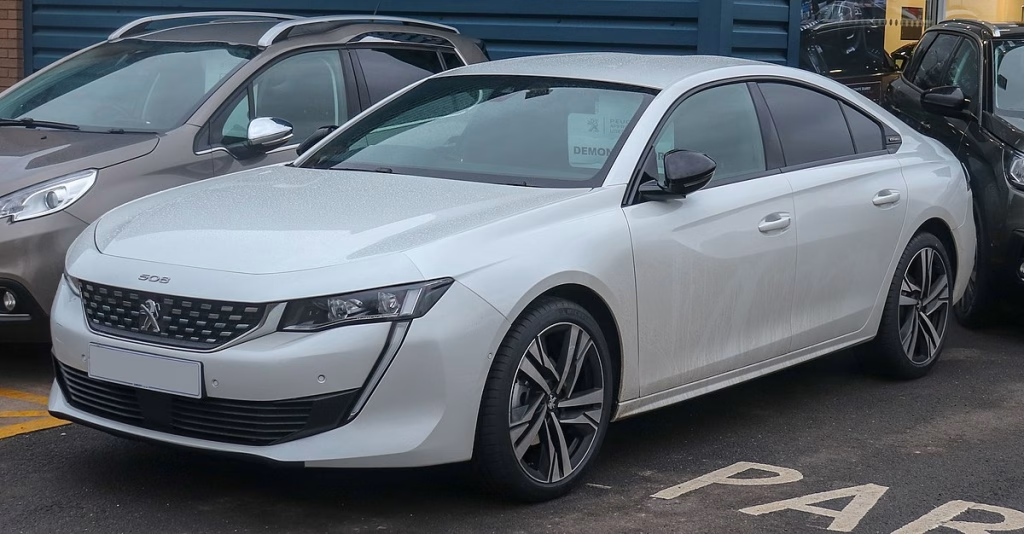
Our list of 10 cars that Nigerian customers should avoid buying in 2025 includes the Peugeot 508. The Peugeot 508 is made by a French automobile manufacturer known as Peugeot. The Peugeot 508 is a mid-size sedan model designed primarily for comfort and style, with a focus on the European market.
However, this model has attracted the attention of many in the world, specifically Nigerians, due to its stylish design and modern features with a touch of European elegance. However, its suitability for the Nigerian environment is limited. The issues with maintenance, road suitability, and resale make it a car that Nigerians should steer clear of.
These are the primary reasons Nigerians should reconsider their investment in this vehicle.
1. Spare Parts Scarcity and High Maintenance Cost
Because the Peugeot 508 is not a popular car in Nigeria, its spare parts are not readily available in the local market. When parts are available, they are often expensive and must be imported, which leads to delays and requires extra costs. Compared to Toyota or Honda, which have widespread local support and affordable components in the local market.
Peugeot owners often struggle to find reliable parts and skilled technicians. This makes maintaining the Peugeot 508 a financial burden in the long run for Nigerians.
2. Low Ground Clearance for Bad Roads
Nigerian roads are notorious for their rough patches, potholes, and unpaved routes, and the Peugeot 508’s low ground clearance renders it unsuitable for these conditions.
Driving on bad roads can result in damage to the underbody, suspension, and other sensitive parts, increasing the likelihood of frequent visits to the mechanic and costly repairs, something most Nigerians would prefer to avoid.
3. Complicated Technology and Electrical Systems
Unlike other brands of cars, the Peugeot 508 boasts advanced electronics and smart features that require specialized diagnostic tools and knowledge to fix.
Unfortunately, most roadside and even some certified mechanics in Nigeria are not fully trained to handle these complex systems. As a result, many owners experience recurring electrical faults and unreliable performance.
4. Poor Resale Value
Another reason to avoid buying a Peugeot 508 is its poor resale value.
For many Nigerian car owners, sale value plays a crucial role, particularly when they intend to upgrade or switch vehicles after a few years. Peugeot cars, including the 508, generally suffer from poor resale value due to limited demand, as potential buyers are often discouraged by the same issues of maintenance costs, spare parts, and reliability.
3. Hyundai Sonata
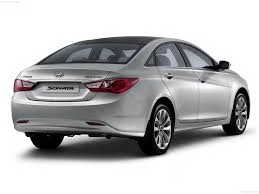
Hyundai Motor Company, a multinational automotive company based in Seoul, South Korea, manufactures the Hyundai Sonata.
The Hyundai Sonata is also on our list of 10 cars that Nigerian customers should avoid buying in 2025. This midsize sedan car might be good in countries with smooth roads, abundant technical support, and readily available spare parts.
However, in Nigeria, it’s more of a mismatch due to its low ground clearance, high maintenance costs, limited parts availability, and poor resale value, making it a car Nigerians should think twice about before buying. Opting for more rugged, widely supported alternatives is the best.
1. Low Ground Clearance
One of the biggest drawbacks of the Hyundai Sonata in Nigeria is its low ground clearance level. Most Nigerian roads, particularly those beyond major cities, are rife with potholes, bumps, and uneven surfaces.
The Sonata has difficulty This road condition increases its susceptibility to underbody damage. The use of the Sonata in such environments increases maintenance costs and shortens the vehicle’s lifespan.
2. Cost of Spare Parts and Maintenance
Though Hyundai is not a luxury brand, sourcing spare parts for the Sonata in Nigeria can be expensive and sometimes frustrating. The parts are not as widely available as those for Toyota or Honda vehicles, leading to high repair costs.
Additionally, many local mechanics are not familiar with Hyundai technology, which can result in poor repairs or the need to seek out expensive, brand-specific service centers.
3. Poor Resale Value
HHyundai cars, especially the Sonata, struggle to hold their value in Nigeria. WWhen it’s time to upgrade or sell, owners often struggle to secure a fair price. ThThis makes the Sonata a poorer investment compared to more popular brands like Toyota or Honda, which are in higher demand and have a better resale value.
4. Electrical and Engine Issues
Another major problem with the Hyundai Sonata is that its engine knocks without prior notice, and due to a lack of readily available replacements, the car may stay longer than expected at the mechanic’s workshop.
Also, many Nigerian drivers have reported recurring electrical faults and engine issues with the Sonata, especially the older models. ThThese problems often incur high diagnostic and repair costs.
Combined with the difficulty of finding skilled technicians and spare parts, the car can quickly become a burden to the owner.
4. Kia Cerato
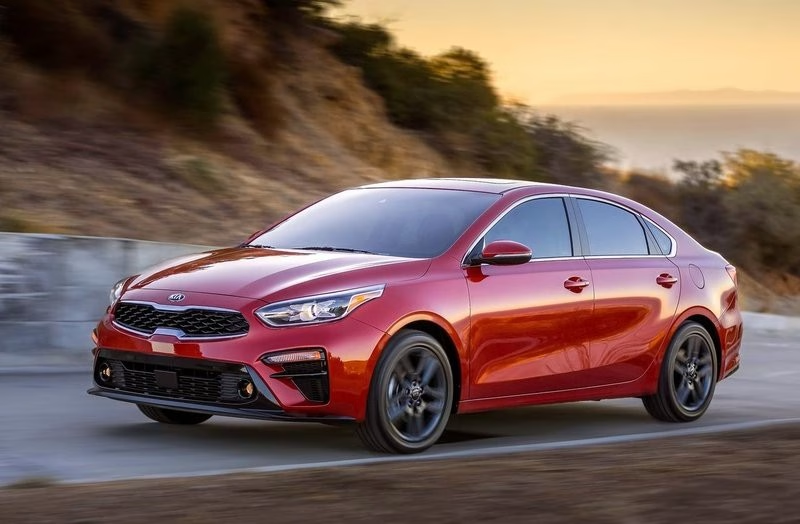
The next on our list is the Kia Cerato. ThKia Corporation, a South Korean automobile manufacturer with its headquarters in Seoul, South Korea, manufactures the Kia Cerato.
Kia Cerato seems attractive at first glance due to its price and design, but its long-term ownership experience in Nigeria can be frustrating. DuBuyers are better off choosing more durable and popular alternatives due to scarce parts, poor resale value, reliability concerns, and the unsuitable design of the Cerato for Nigerian roads.
ThThe Kia Cerato, also known as the Forte in some regions, may appear to be an affordable and stylish compact sedan, but for Nigerian car buyers, it comes with several drawbacks that make it a bad investment in the long run for Nigerian users.
1. Scarce spare parts
The major drawback with the Kia Cerato in Nigeria is spare parts availability. Unlike other models that dominate Nigerian roads and have widely available parts in virtually every city, the Cerato’s parts are relatively scarce and expensive.
This scarcity leads to long waiting periods for repairs and inflated maintenance costs, especially when dealing with authorized service centers.
2. Poor resale value
Resale value is another issue of concern. In Nigeria’s car market, resale value is a big deal, as many Nigerians desire to change their cars after using them for a while for a good price.
Unfortunately, the Kia Cerato depreciates rapidly below the expected margin. This is basically due to low demand for the brand and its models.
Hence, when the time comes to sell, owners often have to settle for far less than they expected, which makes it an unwise financial decision compared to more popular alternatives like the Toyota Corolla.
3. Electrical and Mechanical issues
Another reason to avoid the Kia Cerato in Nigeria is mechanical and electrical reliability.
Many Nigerian drivers have complained about recurring issues with the Cerato’s transmission system, engine sensors, and electrical components.
In a country where skilled mechanics and diagnostic tools for Korean cars are limited, these problems can become recurring headaches.
Most mechanics in Nigeria are more familiar with Japanese vehicles, meaning that a Cerato owner might struggle to find capable technicians that can fix their Cerato when it is faulty.
4. Poor ground clearance.
The Cerato’s ground clearance is not ideal for Nigerian roads. Potholes, bad terrain, and frequent flooding can make driving a low-sitting car like the Cerato very uncomfortable and risky.
The bad roads in Nigeria, especially in locations that are outside the major cities, may cause constant underbody damage, which will, in the long run, increase repair frequency and costs.
5. Relatively high fuel consumption
Fuel efficiency is another consideration. While Kia claims decent fuel economy figures, real-world experiences in Nigeria suggest otherwise.
Many users report higher-than-expected fuel consumption, particularly in older models and in the harsh driving conditions common in Nigeria.
5. Chevrolet Cruze
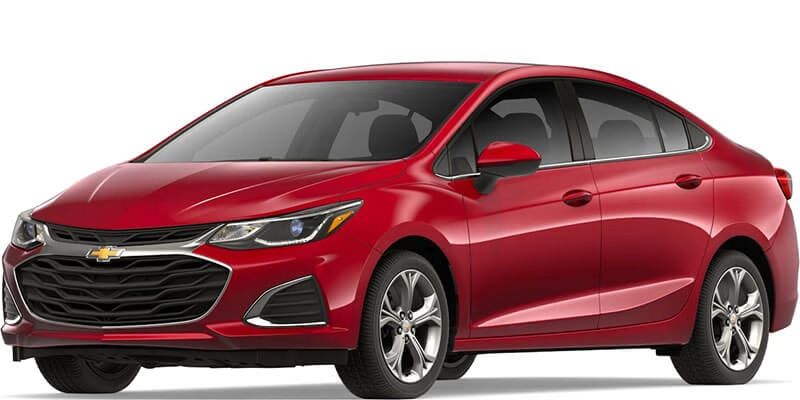
General Motors (GM) manufactured the Chevrolet Cruze. It was produced under the Chevrolet brand and was first introduced in 2008 as a compact car.
The stylish car production took place in several countries, including Argentina, the United States, and South Korea.
Despite the beauty of this car, it fails to meet up with the necessary factors that Nigerians consider while making their choices of cars.
When considering a car for purchase in Nigeria, factors such as road conditions, availability of spare parts, fuel efficiency, and long-term durability play a major role when making choices.
Over time, the Chevrolet Cruze is that one car that has often failed to meet these expectations for Nigerian drivers.
Although the Chevrolet Cruze may appear stylish and affordable at first glance, several issues make it a risky investment in the Nigerian market.
1. Low ground clearance
Nigerian roads, especially outside major cities, are riddled with potholes and rough terrain. The Chevrolet Cruze is designed more for smooth highways than rugged roads, making it struggle with Nigeria’s challenging road network.
Its suspension system is relatively weak and prone to damage under harsh driving conditions. This leads to frequent trips to the mechanic and increased maintenance costs, which makes it a risky choice.
2. Scarcity of Spare Parts
Another major issue is the availability of spare parts. Chevrolet is not a dominant brand in Nigeria, so finding genuine parts for the Cruze can be difficult and expensive.
In contrast, brands like Toyota and Honda have established networks with readily available and affordable parts. For the Cruze, even basic components like sensors and transmission parts may take time to source and may need to be imported, increasing downtime and repair costs.
3. Unreliable Transmission System
Many Chevrolet Cruze models, especially the 2011–2014 versions, have been widely criticized for their faulty automatic transmission. Owners often report jerky gear shifts, delayed acceleration, and even total transmission failure. In a country like Nigeria, where the cost of major repairs can be overwhelming, this is a huge red flag.
4. Low Resale Value
Due to the issues associated with the Cruze, its resale value is significantly lower than more trusted brands. Should an owner decide to sell the vehicle later, they may struggle to find a buyer or recover a reasonable portion of their initial investment.
This reason makes the Chevrolet Cruze a car that one needs to think twice about before making the decision to buy in Nigeria.
5. Limited Technical Expertise
Most Nigerian mechanics are more familiar with popular brands like Toyota, Honda, and Hyundai. The Chevrolet Cruze requires specialized diagnostics and repair methods, which many local workshops may not be equipped to handle. This can lead to misdiagnosis and further complications.
6. Chery QQ
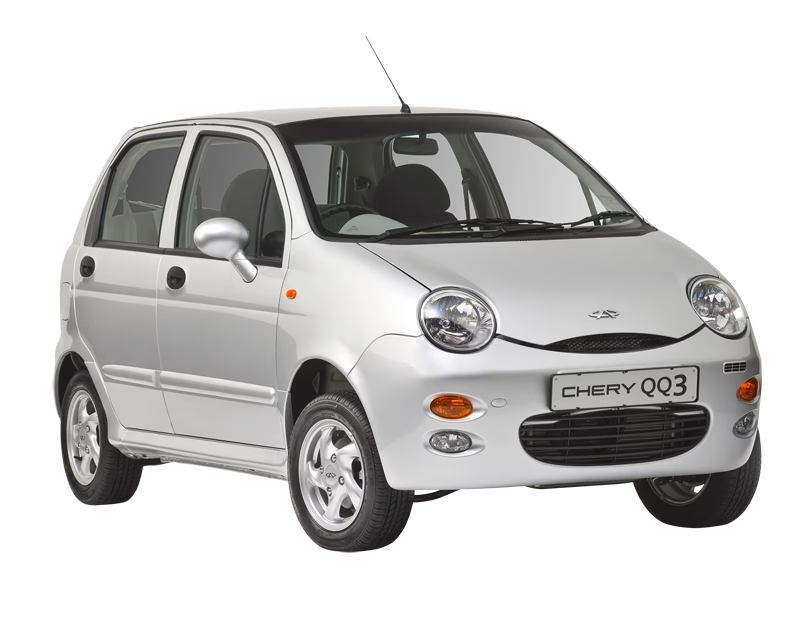
TThe Chery QQ, a subcompact car made in China, may appear to be a cost-effective choice for Nigerians seeking affordable mobility. However, several critical issues make it a poor choice for long-term ownership in Nigeria, despite its low initial cost.
1. Poor Body quality
The Chery QQ suffers from poor build quality. The materials used in both the interior and exterior are substandard.
Hence, many users have reported problems such as dashboard cracking, door handles breaking, and poor paint durability. IA poorly built vehicle will deteriorate much faster than expected in a country like Nigeria, where road conditions can be tough and the weather unpredictable.
2. Scarce spare parts
The scarcity of genuine Chery QQ spare parts, unlike those from more popular brands, poses a significant concern for Nigerian buyers.
IIInhe instance where parts are available, they are often expensive or of questionable quality. Hence, making repairs frustrating and more expensive in the long run defeats the purpose of buying a “cheap” car.
2. Lack of sufficient specialist
Another major drawback is the lack of qualified mechanics who are familiar with Chery vehicles. Most local mechanics are not trained to handle Chinese cars, especially those like the QQ, which have unique designs and components. Owners often struggle to find technicians who can fix even simple issues without causing more problems.
3. Relatively low performance
In terms of performance, the Chery QQ is underpowered and struggles on rough terrain or steep roads. With Nigeria’s often poor road infrastructure, this is a huge disadvantage to owners of Chery QQQQs
The engine is relatively small compared to other cars and not built for durability, making the car unsuitable for heavy daily use or long-distance travel.
4. Lack of Safety kits
Safety is also a major issue with this car. The Chery QQ lacks basic safety features such as airbags and ABS in many of its models. Crash test ratings are either unavailable or very low.
In a country where accidents are common due to poor road conditions and erratic driving habits, this puts the driver and passengers at serious ririsk,specially where children might be onboard.
7. Renault Koleos

ReThe Renaultoleos is thxt on our list of the 10 cars that Nigerians should not buy in 2025.
The Renault Koleos is attractive due to its dedesign,hich makes it look appealing at first glance, but it is not a practical choice for the average Nigerian.
The car has many drdrawbacks,anging from the high cost of maintenance, difficulty in finding parts, and low resale vavalue.uBuyersre better off investing in more common and durable vehicles than buying Rea Renaultoleos.
There are other reasons why Nigerians should be cautious about buying them. 1. Scarcity of Spare Parts
One of the biggest challenges with the Renault Koleos in Nigeria is the unavailability of spare parts. This is as a result of the fact that Renault has a limited presence in Nigeria.
The low presence of Koleos in Nigeria makes it difficult to source replacement parts locally, forcing owners to either import them at high costs or search endlessly through specialized dealers. In cases of mechanical faults or accidents, this scarcity can turn a minor issue into a major problem.
2. Limited Technical Expertise
Most Nigerian mechanics are familiar with Asian brands like ToToyota d Honda. Many local technicians lack the necessary training to handle the unique engineering style of the Renault Koleos, a European vehicle.
As As a result, owners may have to visit specialized workshops or dealerships with certified technicians, which could lead to a longer diagnosis and repair process and higher costs..
3. Poor Resale Value
RResale value is another crucial consideration for many Nigerian car buyers. AsManyuy cars to use for a short while and resell them in order to get another car or a better model.
Hence, cars with poor resale value are often avoided because they become difficult to sell or trade in the future.
TDue to its limited popularity and high maintenance costs, the Renault Koleos depreciates quickly and is not in high demand in the used car market. ThThis makes it an unfavorable investment for those who may wish to upgrade their vehicle in the future.
4. High Maintenance Costs
Routine maintenance for the Renault Koleos can be expensive. FFrom oil filters to engine components, most parts are either unavailable locally or significantly more expensive than those of more popular brands. Over time, this adds a financial burden on the owner, especially in a country like NiNigeria,here inflation and the cost of living continue to rise.
5. Not Well-Suited for Nigerian Roads
AAlthough the Koleos has a modern and attractive design, its suspension and underbody are not ideal for Nigeria’s rough terrain and poorly maintained roads. UDrivers often report damage to the suspension system and undercarriage when driving on bad roads, resulting in frequent repairs.
8. Ford Fusion
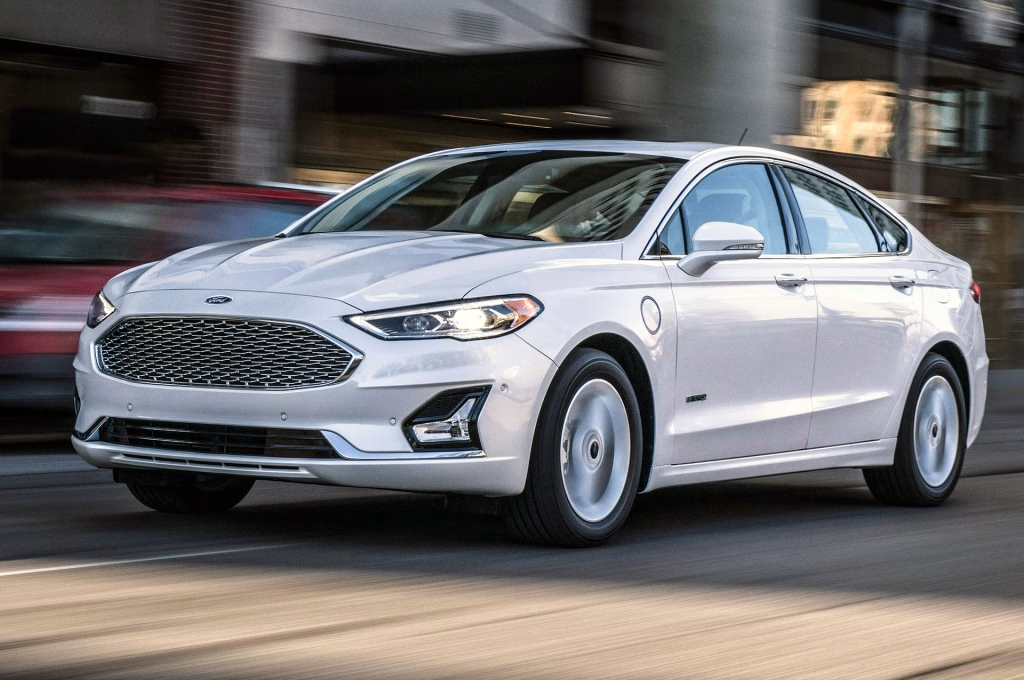
FoThe Fordusion also falls inonhe list of 10 cars that Nigerian customers should avoid bubuyingn 202025.hThiss because the car did not meet up with the major factors to be considered when making choices regarding the car to buy in Nigeria.
While the Ford Fusion’s sleek design and features make it visually appealing, it may not be the most suitable option for the Nigerian climate. He There are several reasons Nigerians should avoid purchasing the Ford Fusion.
1. High Maintenance Costs
The Ford Fusion, especially the newer models, comes with complex electronic systems that are expensive to maintain. In Nigeria, where car parts for American brands are not always readily available, repairs can be both time-consuming and costly. Mechanics often struggle with the technology, leading to repeated issues and unnecessary expenses.
2. Spare Parts Availability
Another issue with Ford vehicles in Nigeria is the limited availability of spare parts, which makes routine repairs or part replacements challenging. Most times, parts must be imported, which leads to delays and high costs. In emergencies, this becomes a major inconvenience for car owners.
3. Poor Adaptability to Nigerian Roads
NNigeria’s road conditions can be harsh, particularly in rural areas. TThe Ford Fusion, built for smooth terrain, does not perform well on pothole-filled or poorly maintained roads. ItIts low ground clearance makes it more susceptible to damage, and frequent repairs can drain the owner’s finances.
4. Resale Value
TThe resale market for Ford cars in Nigeria is weak. Most Nigerians prefer Toyota and Honda due to their durability and ease of maintenance. Buying a Ford Fusion can take longer, but you’re likely to receive a lower price compared to other popular brands.
5. Fuel Consumption
Though the Ford Fusion is marketed as a fuel-efficient sedan, its real-world fuel economy isn’t as impressive, especially in traffic-heavy Nigerian cicities.oComparedo Tothe Toyotaamry or Honda Accord, it consumes more fuel, adding to the cost of daily usage.
9. Nissan Altima

The Nissan Altima is another brand of car that Nigerians are not advised to bubuy;hough stylish and popular in some parts of the woworld, its a car that many Nigerians should think twice before buying.
It Although the Nissan Altima’s sleek design and affordable price may initially make it seem like a good deal, its deeper issues rendere it less than ideal for the Nigerian environment and economy.
Here are some reasons that make the Nissan Altima fall among cars that are not the best for Nigerians to buy in 2025.
1. Short lifespan of transmission
One of the most common complaints about the Nissan Altima is its continuously variable transmission (CVT). UnSimilar to traditional automatic gearboxes, the CVT in many Altima models, particularly those from 2013 to 2018, is notorious for premature failure.
ThAfter just a few years of use, a transmission often begins to jerk, lag, or completely break down.
IIn Nigeria, where road conditions can be rough and the maintenance culture isn’t always up to par, this becomes a huge problem. Replacing or repairing a CVT transmission is exexpensive,nd parts are not always readily available in the Nigerian mamarket,ausing mumany issuesor the owner.
2. Unavailability of Spare parts
Another is spare parts availability. UUnliNissan parts, particularly for the newer Altima models, are harder to find and often more expensive than those for Toyota or Honda models, which are readily available in virtually every part of Nigeria. This drives up the cost of maintenance and repairs.
For an average Nigerian trying to keep transportation costs low, this stands as a major disadvantage.
3. Relatively uneconomical fuel consumption
TCompared to some other brands, the Nissan Altima’s fuel consumption is not the most economical.
WhWhile the car may be deemed average in other countries, its performance in Nigeria, with its fluctuating fuel prices and frequent traffic, can significantly impact the owner’s finances over time.
4. Low resale value
The resale value is another area where the Altima falls short. Due to its negative reputation among Nigerian car users, it can be challenging to sell a used Altima.
Ma Finding a buyer at a reasonable price can be challenging, as many mechanics and car dealers openly advise against buying one.
10. Jaguar XF
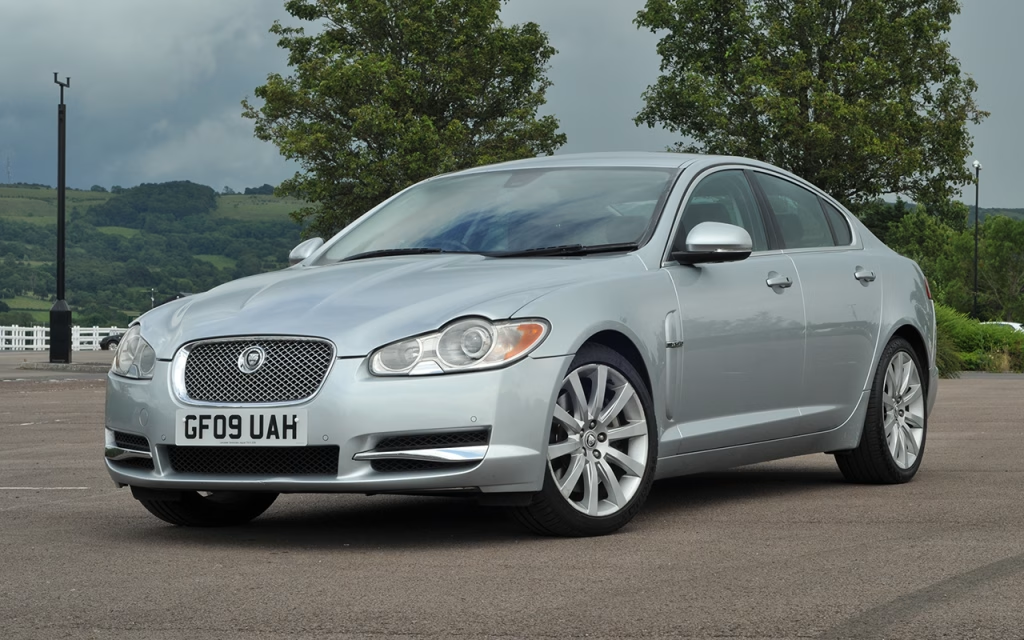
JaThe JaguarF also falls into our list of the 10 cars that Nigerians should not buy in 202025.hThoughhe Jaguar XF is a luxury sedan known for its sleek design, powerful performance, and British elegance, it may not be the best choice for the average Nigerian car buyer.
AsAside fromts attractive exterior and brand appeal, the Jaguar XF poses several challenges that can make it more of a burden than a blessing in the Nigerian context.
1. Maintenance and Spare Parts
One of the biggest issues with the Jaguar XF in Nigeria is the high cost and limited availability of spare parts.
Jaguars are not commonly used in the country, so finding genuine parts can be difficult and expensive.
Even routine maintenance requires specialized tools and expertise, which most local mechanics lack. This means that every small fault could lead to long wait times, high costs, or even being forced to import parts from ababroad,hich an average Nigerian may not be able to handle.
2. Poor Fuel Economy
The Jaguar XF is a performance-driven vehicle with powerful engines that consume a lot of fuel.
Considering Nigeria’s inconsistent fuel prices and the rising cost of petrol, this can become a serious financial drain.
AAdditionally, the fuel quality in many areas of Nigeria is substandard, which may not be well handled by the Jaguar XF’s engine. Over time, this can cause engine problems and reduce the vehicle’s lilifespan,dding to the fact that itits rts are not readily available in mathe market.
3. Low Ground Clearance
Nigerian roads, particularly those in less developed areas, are notorious for their potholes and rough surfaces. Consequently, the Jaguar XF, like most luxury sedans, has a low ground clearance, rendering it unsuitable for Nigerian road conditions.
Owners often find themselves scraping the car’s underbody or getting stuck during the rainy season.
4. Poor Resale Value
Luxury cars such as the Jaguar XF depreciate rapidly in Nigeria, leading many buyers to avoid second-hand models due to concerns about hidden faults and high repair costs.
This makes it difficult to resell the car for a good price if the owner ever wants to upgrade or let go of it.
Conclusion
Many car models are undeniably stylish and powerful vehicles, but they are not practical for most Nigerians. Due to basic factors ranging from high maintenance costs, poor compatibility with Nigerian roads and fuel, and low resale value, prospective buyers are better off purchasing other vehicle brands that are more durable, economical, and locally supported.
